Imaging Science
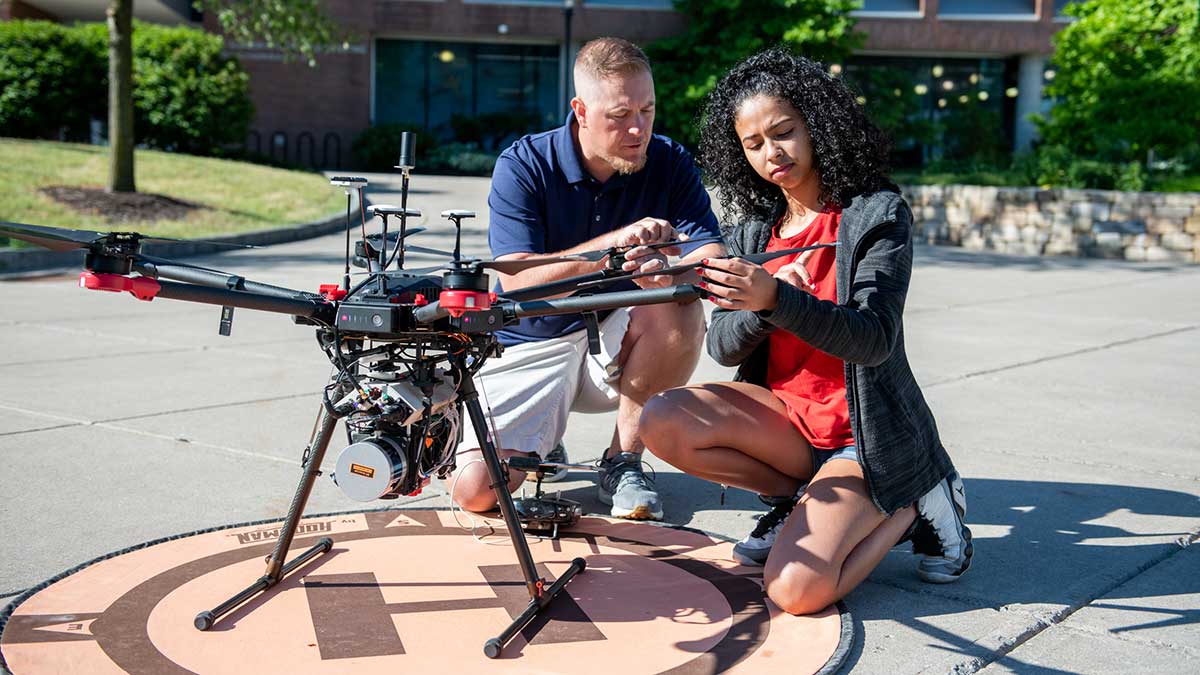
Imaging Science
- RIT/
- College of Science/
- Research/
- Imaging Science
Dedicated research support ensures students are exposed to cutting-edge imaging systems like satellites and detectors to answer fundamental scientific questions, monitor, and protect our environment, help keep our nation secure, and aid medical researchers in their quest to conquer disease.
Artificial Intelligence

Faculty in the Chester F. Carlson for Imaging Science are conducting research on AI applications in imaging-related fields. Their work encompasses computer vision systems, remote sensing technologies, advanced image processing techniques, eye tracking methodologies, hyperspectral imaging applications, space optics innovations, and laser photonics advancements. This multifaceted approach allows for the exploration of AI's potential in various imaging science domains.
Cultural Heritage Imaging

Faculty working on cultural heritage imaging develop novel imaging systems and algorithms to analyze historical artifacts around the world. Research is primarily focused on multi- and hyperspectral imaging, but also includes imaging modalities such as reflectance transformation imaging and X-ray fluorescence. An active area of research is also the development of novel 3D visualization tools for scholars to interact with the digital artifacts after image collection and processing.
Actively Conducting Research
RIT’s Chester F. Carlson Center for Imaging Science is part of the Rochester Cultural Heritage Imaging, Visualization, and Education group (R-CHIVE), a collaboration of university researchers and students with the goal of extending the corpus of mankind’s cultural heritage. R-CHIVE leverages the long history of imaging innovation and humanities excellence in Rochester to recover inscriptions from manuscripts and maps that had been erased or otherwise damaged. R-CHIVE puts Rochester is on the forefront of the scientific study of cultural heritage. R-CHIVE’s task is both urgent and difficult due to the loss of artifacts resulting from climate change and deliberate destruction.
Over the last two decades, R-CHIVE members have participated in numerous projects that successfully recovered writings formerly thought lost, including Archimedes Palimpsest, the oldest known copies of the writings of Archimedes from the 10th century that were erased and overwritten in 1229 CE; the Temple Scroll from the caves in Qumran; the erased and overwritten palimpsests at St. Catherine’s Monastery in Sinai; Les Échéz d’Amours, a manuscript damaged by the Allied bombing raids upon Dresden in 1945; and the c. 1491 world map by Henricus Martellus Germanus. Other projects include work on the medieval Gough Map of Britain and Selden Map of China, in the Bodleian Library at the University of Oxford; and a collaboration with the City of Dubrovnik Croatia to work with their many collections.
College of Science
Imaging Science BS
Imaging Science MS
Imaging Science Ph.D.
Applied and Computational Mathematics MS
Applied Mathematics BS
Applied Statistics and Data Analytics BS
Applied Statistics MS
Computational Mathematics BS
Mathematical Modeling Ph.D.
Physics BS
Physics MS
College of Liberal Arts
Detectors and Imaging Systems
Research in this area focuses on the development of novel imaging systems, primarily for astronomical applications. Significant research has been conducted on the use of Digital Micro-mirror Devices in multi-object spectrometers for astronomical imaging systems. Additional work has focused on random apertures for extremely large space-based telescopes and vortex coronagraph imaging systems. Other research in optical systems includes the use of ultrafast lasers for the development of novel photonic detectors and other surface polishing applications.
Actively Conducting Research
College of Science
Imaging Science BS
Imaging Science MS
Imaging Science Ph.D.
Astrophysical Sciences and Technology MS
Astrophysical Sciences and Technology Ph.D.
Physics BS
Physics MS
Kate Gleason College of Engineering
Human and Computer Vision
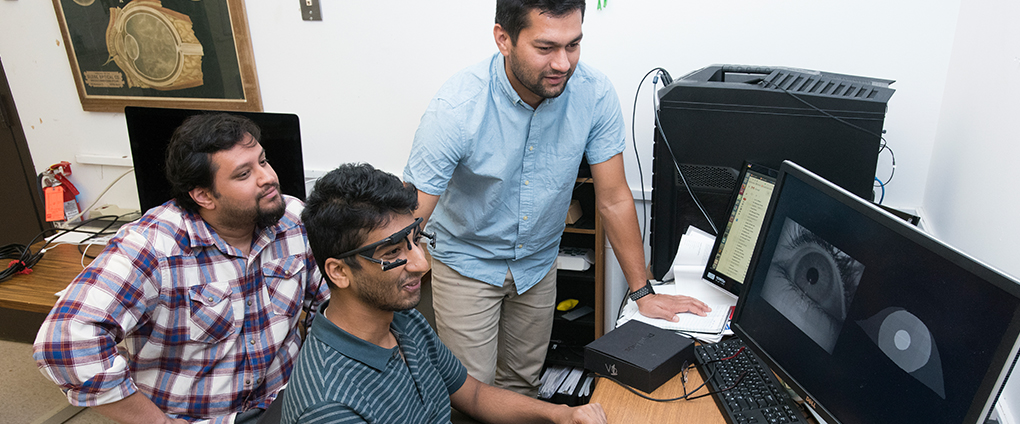
The Multidisciplinary Vision Research Laboratory combines expertise in eye tracking instrumentation, cognitive science knowledge of the human visual system, and computer vision to understand how the eye-brain system works, as well as how to leverage that knowledge into novel computer vision systems. The research is supported by the Perception For Movement Lab (PerForM) with both full motion capture and multiple AR/VR system capabilities. Additionally, active research into computer vision and deep learning approaches for applications from 3D scene understanding to active learning frameworks are ongoing.
Actively Conducting Research
College of Science
Imaging Science BS
Imaging Science MS
Imaging Science Ph.D.
Color Science MS
Color Science Ph.D.
Golisano College of Computing and Information Sciences
College of Liberal Arts
Remote Sensing
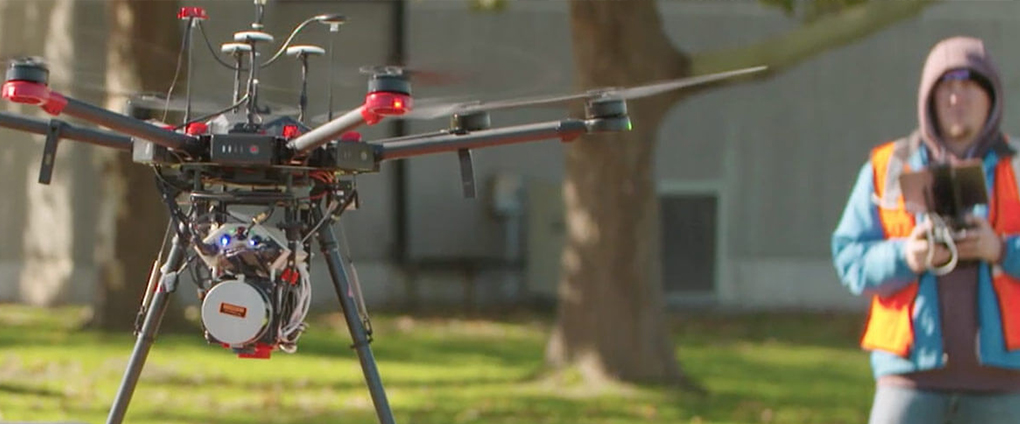
The Digital Imaging and Remote Sensing Laboratory (DIRS) is world-renown for its expertise in remote sensing systems, algorithms, and applications. Their work encompasses novel system design and calibration for NASA Earth-observing satellites to the development of imaging systems to fly on small Unmanned Aerial Vehicles (UAVs) for precision agriculture. Additionally, the DIRSIG software developed and maintained by the DIRS laboratory is the industry standard to simulate remotely sensed imagery and is used for both system engineering trade studies as well as a source of training data for deep learning algorithmic frameworks.
Actively Conducting Research
Experts (Not Conducting Research)
John Schott
College of Science
Imaging Science BS
Imaging Science MS
Imaging Science Ph.D.
Applied and Computational Mathematics MS
Applied Mathematics BS
Applied Statistics and Data Analytics BS
Applied Statistics MS
Computational Mathematics BS
Mathematical Modeling Ph.D.
Physics BS
Physics MS
Golisano College of Computing and Information Sciences
Computer Science BS
Computer Science MS
Kate Gleason College of Engineering
NanoImaging
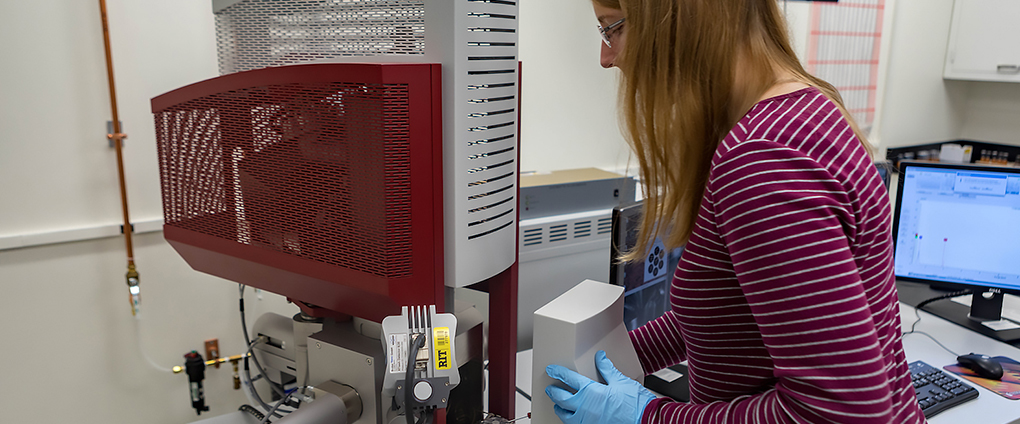
There is active work within the center in nanoimaging through the use of electron microscopy. The NanoImaging Lab is home to four electron microscopes (2 SEMs & 2 TEMs) and focuses on two major research themes. First, using imaging science to improve the performance of electron microscopes computationally. This includes the point spread function determination, electron optics modeling, image restoration, and deconvolution research. Second, in this laboratory, we use the tools of imaging science to characterize materials at the micro and nanoscale, using electron microscopy.
Actively Conducting Research
Magnetic Resonance
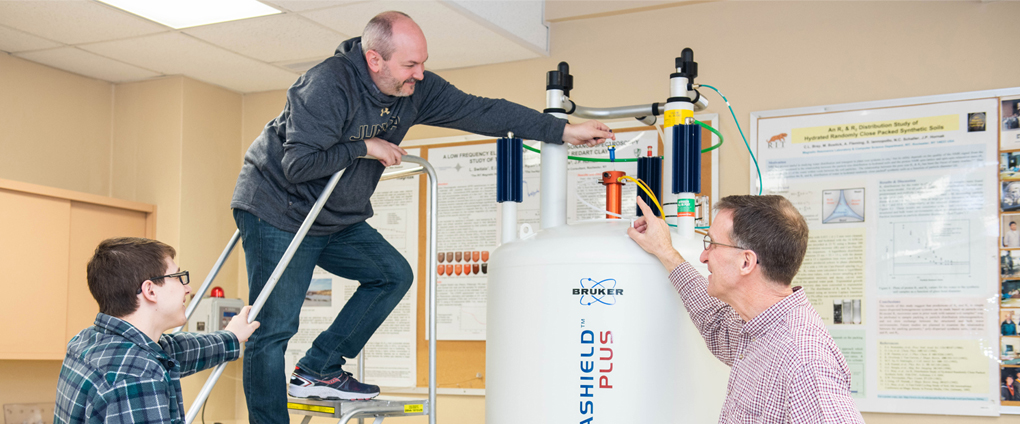
The center is the home to the Magnetic Resonance Laboratory devoted to solving real-world problems with magnetic resonance. The laboratory has several pieces of specialized magnetic resonance spectroscopy and imaging instrumentation on the RIT campus. Among these are a 500 MHz NMR spectrometer with a micro-imaging accessory, a low-frequency electron paramagnetic resonance (LFEPR) spectrometer, an Overhauser magnetometer with a base station, a three-axis magnetometer, and a radio frequency imaging coil test bridge.
Actively Conducting Research
Optical Imaging
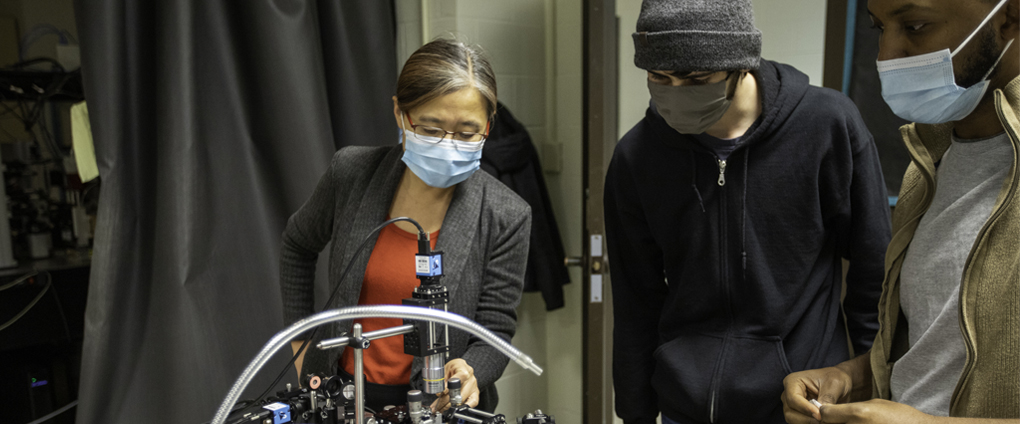
We conduct applied optics research in the use of optics from the smallest scales to the largest. This includes the Optical Vortex Laboratory and the Advanced Optical Fabrication, Instrumentation, and Metrology Laboratory (AOFIM Lab).
Actively Conducting Research
College of Science
Imaging Science BS
Imaging Science MS
Imaging Science Ph.D.
Physics BS
Physics MS
Kate Gleason College of Engineering
Astronomy

The Laboratory for Multiwavelength Astrophysics fosters the utilization and advancement of cutting-edge techniques in multiwavelength astrophysics by RIT faculty, research staff, and students, so as to improve human understanding of the origin and fate of the universe and its constituents.
Actively Conducting Research






































